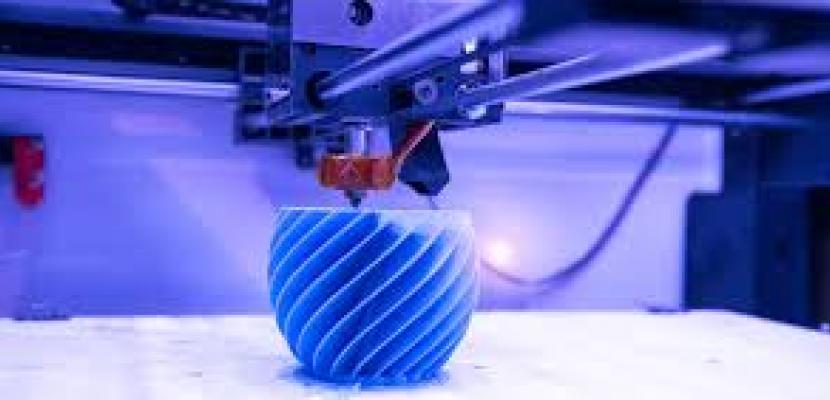Image

SAMT- Spread of Additive Manufacturing (AM) and advanced materials Technologies
Published on 04 June 2020

Portugal
This is the good practice's implementation level. It can be national, regional or local.
About this good practice
The Plastic and mould sector within the Interreg Sudoe Programme (Southwest Europe) faces a number of common problems, which hinders their ability to compete in a global market: difficulty to be involved actively and efficiently in R&D activities, troubles to incorporate innovations developed in universities and R&D institutions, problems to update technology and develop a skilled workforce.
To face these challenges, SAMT brings together a remarkable group of organizations (R&D centres, clusters, higher education and R&D, governmental & regional institutions) having extensive knowledge and expertise in Additive manufacturing technologies (3D printing) and Advanced Materials, plastic and mould technologies.
Particularly, Additive manufacturing technologies (3D printing) and Advanced Materials are the project focus in order to boost advanced production systems, nanotechnology and advanced materials in industrial sectors such as plastic processors and mould industries.
The project has been structured to respond to regional challenges and achieve project objectives: To transfer new KET (Additive Manufacturing technologies and Advanced Materials) and facilitate their implementation throughout the regions present in the project.
These new technologies will be spread over the plastic processor and mould industries, which are well established technological industries that work within a broad range of sectors including the automotive, health, creative industries, textile, etc.
To face these challenges, SAMT brings together a remarkable group of organizations (R&D centres, clusters, higher education and R&D, governmental & regional institutions) having extensive knowledge and expertise in Additive manufacturing technologies (3D printing) and Advanced Materials, plastic and mould technologies.
Particularly, Additive manufacturing technologies (3D printing) and Advanced Materials are the project focus in order to boost advanced production systems, nanotechnology and advanced materials in industrial sectors such as plastic processors and mould industries.
The project has been structured to respond to regional challenges and achieve project objectives: To transfer new KET (Additive Manufacturing technologies and Advanced Materials) and facilitate their implementation throughout the regions present in the project.
These new technologies will be spread over the plastic processor and mould industries, which are well established technological industries that work within a broad range of sectors including the automotive, health, creative industries, textile, etc.
Expert opinion
The good practice aims to facilitate the adoption of new Key Enabling Technologies (KETs) in Southwest Europe, to support the creation of an innovative regional ecosystem (R&D centres, clusters, higher education and R&D, governmental & regional institutions) to accelerate knowledge transfer, to develop a skilled workforce, and to update industrial technologies. In particular, the project focuses on Additive Manufacturing Technologies (3D printing) and Advanced Materials in order to boost advanced production systems and nanotechnology in the sector of plastic and mould industries, providing a Technology Roadmap, a transnational web Platform and open educational resources.
Some insights from the good practice:
-The good practice offers an integrated strategy to diffuse new Industry 4.0 technologies in an industry. In this case, the implementation of Additive Manufacturing and Advanced Materials Technologies in plastic and mould industries. Such strategies can have strong knowledge spillovers on other industry and trigger new industrial dynamics.
Some insights from the good practice:
-The good practice offers an integrated strategy to diffuse new Industry 4.0 technologies in an industry. In this case, the implementation of Additive Manufacturing and Advanced Materials Technologies in plastic and mould industries. Such strategies can have strong knowledge spillovers on other industry and trigger new industrial dynamics.
Works at
Interreg Europe Policy Learning Platform
Resources needed
Total investment for the project is approximately 994,800€, with the ERDF contributing approximately 746,000 €, through the “Interreg Sudoe Programme”.
Evidence of success
A number of activities to disseminate KET and boost technology transfer were developed as products of the project:
Technology Roadmaps - Specialized roadmaps on existing technologies (plastic and mould industries’ techniques) and future KET (AM and advanced materials) defined according to industrial needs and requirements.
A transnational collaborative SAMT web Platform will ease the involvement of SMEs in R&D activities.
Creation of training material in the form of Open Educational Resources
Technology Roadmaps - Specialized roadmaps on existing technologies (plastic and mould industries’ techniques) and future KET (AM and advanced materials) defined according to industrial needs and requirements.
A transnational collaborative SAMT web Platform will ease the involvement of SMEs in R&D activities.
Creation of training material in the form of Open Educational Resources
Potential for learning or transfer
Taking into account that Key Enabling Technologies (KETs) are rapidly becoming important tools for small businesses and R&D centres in the increasingly diverse industries of plastic processing and mould production, this practice has valuable lessons learnt and outputs for other regions to benefit from. The project showed, there is a lack of compiled information about KETs that is readily available to these companies. For that reason specialized roadmaps on existing technologies (plastic and mould industries’ techniques) and future KET (AM and advanced materials) were defined according to industrial needs and requirements.
Also, the setting-up of a transnational collaborative SAMT web platform will ease the involvement of SMEs in R&D activities and assist collaboration among organisations throughout the value chain.
Without such support, it is incredibly difficult for companies to find reports and demonstrations regarding the rapidly-evolving trends in these technologies.
Also, the setting-up of a transnational collaborative SAMT web platform will ease the involvement of SMEs in R&D activities and assist collaboration among organisations throughout the value chain.
Without such support, it is incredibly difficult for companies to find reports and demonstrations regarding the rapidly-evolving trends in these technologies.
Further information
Website
Good practice owner
You can contact the good practice owner below for more detailed information.
Organisation
AIJU - Asociación de investigación de la industria del juguete, conexas y afines.

Spain
Comunitat Valenciana
Contact
Project management
